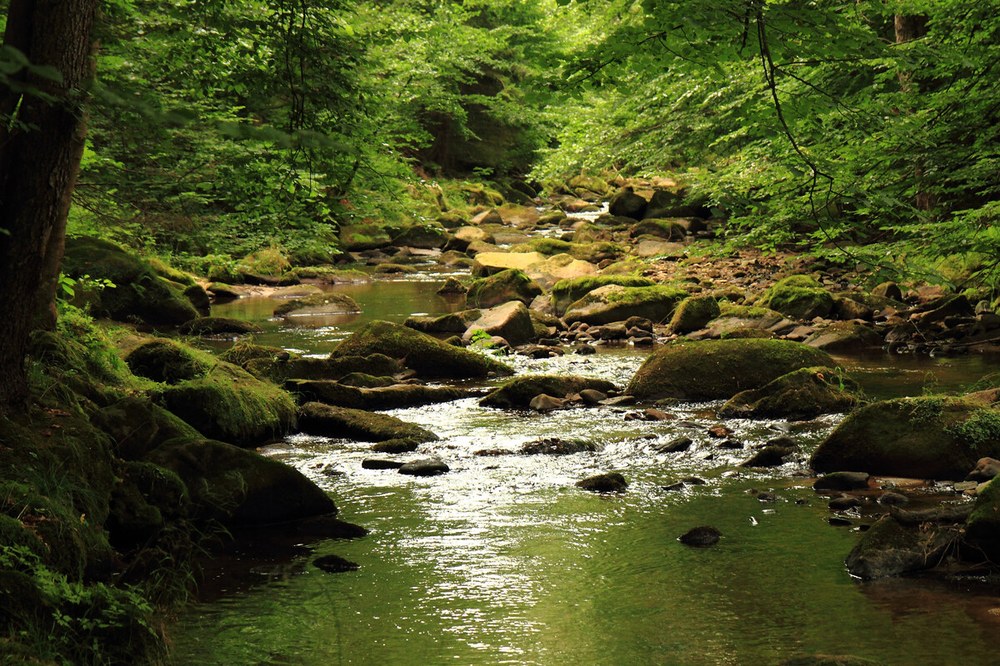Studying biodiversity loss in streams can help to preserve essential ecosystem functions.

Photo: Adobe Stock
Problem
How can we preserve detritivore biodiversity in streams?
- Detritivores are essential organisms that break down and remove dead plant and animal matter, but their populations are dwindling at an alarming rate of up to 10,000 times faster than has occurred through the historic record.
- Decomposition by detritivores is a biological process that is vital to life, releasing essential nutrients like phosphorous and nitrogen that are otherwise unavailable to plants and animals.
Findings
In a global study involving 75 scientists analyzing decomposition in 38 physically similar headwater streams across 23 countries on 6 continents, the researchers quantified the amount of decomposition by detritivores compared to that of microbial organisms alone.
- When detritivores were excluded, simulating extinction, more than 50 percent of decomposition in the streams was lost.
- The study revealed that bacteria and fungi cannot solely decompose and recycle biologically essential materials needed to sustain stream ecosystems.
Impact
The team found that diversity was one of the most dominant predictors of decomposition, which is likely being altered by detritivore extinctions. At highest risk are stream ecosystems in tropical regions where detritivore diversity is already relatively low and some environmental stressors are particularly prevalent.
Research Credit
Team
- Luz Boyero, Naiara López-Rojo, Alan Tonin, Javier Pérez, Francisco Correa- Araneda, Richard Pearson, Jaime Bosch, Ricardo Albariño, Sankarappan Anbalagan, Leon Barmuta, Ana Basaguren, Francis Burdon, Adriano Caliman, Marcos Callisto, Adolfo Calor, Ian Campbell, Bradley Cardinale, et al.
Participating Department
Other Funding
- Basque Government in Spain
Emerging Discoveries
Published Research
Impacts of detritivore diversity loss on instream decomposition are greatest in the tropics.
-
Boyero, L., López-Rojo, N., Tonin, A. M., Pérez, J., Correa-Araneda, F., Pearson, R. G., Bosch, J., Albariño, R. J., Anbalagan, S., Barmuta, L. A., Basaguren, A., Burdon, F. J., Caliman, A., Callisto, M., Calor, A. R., Campbell, I. C., Cardinale, B. J., et al. (2021). Impacts of detritivore diversity loss on instream decomposition are greatest in the tropics. Nature communications, 12(1), [3700]. https://doi.org/10.1038/s41467-021-23930-2
Office for Research and Graduate Education
Address
217 Agricultural Administration BuildingUniversity Park, PA 16802-2600
- Email agresearch@psu.edu
- Office 814-865-3136
Office for Research and Graduate Education
Address
217 Agricultural Administration BuildingUniversity Park, PA 16802-2600
- Email agresearch@psu.edu
- Office 814-865-3136


